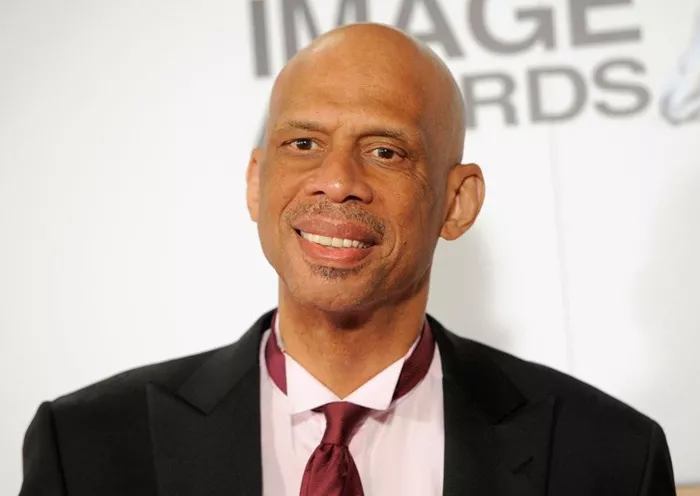Kareem Abdul-Jabbar’s legacy extends far beyond his record-breaking basketball career. The six-time NBA champion and former all-time leading scorer has spent more than five decades as a vocal advocate for social justice and civil rights.
His activism began in 1967, when a 20-year-old Abdul-Jabbar joined Muhammad Ali at the historic Cleveland Summit to support Ali’s protest against the Vietnam War. Four years later, he made headlines by converting to Islam and changing his name, a powerful repudiation of his birth name’s ties to slavery.
But Abdul-Jabbar’s contributions have gone well beyond symbolic acts. He established himself as an intellectual leader, authoring numerous books that promote democratic ideals and social equity. In 2012, the Obama administration appointed him as a global ambassador, recognizing his cultural influence. That same year, his Skyhook Foundation launched STEM programs aimed at empowering marginalized youth. He has also been an outspoken advocate for voting rights and police accountability, using media and film to amplify underrepresented Black stories.
On May 13, 2025, Abdul-Jabbar released his latest book, We All Want to Change the World: My Journey Through Social Justice Movements from the 1960s to Today. In it, he traces the history of American activism, aiming to inspire readers to reclaim the constitutional values of justice and equality.
“The book is a history of Americans ‘doing something about it,’” Abdul-Jabbar said, “and I hope it encourages people today to embrace our nation’s legacy of protesting against injustice.”
In a recent interview, Abdul-Jabbar was asked what advice he would offer to young people who feel overwhelmed or discouraged by the challenges of effecting change. His response was candid: “It always felt overwhelming — and it always will.”
Acknowledging that even those with decades of experience feel the weight of responsibility, he emphasized the importance of persistence. “People who think their rights are safe are often unmotivated to help others be free, even though it is in their best interest,” he explained. “The job of the activist is to show them why it is in their best interest.”
Abdul-Jabbar concluded with a metaphor that underscores the ongoing nature of activism: “We’re there to keep pushing that boulder up the hill, no matter how many times it rolls back down. Because if it rolls all the way down, it crushes everyone’s hopes.”
Reflecting on his earliest experiences, Abdul-Jabbar revisited a defining moment as a 17-year-old journalism student attending a Martin Luther King Jr. press conference in Harlem in 1964. He recalled feeling like an imposter among seasoned journalists but left the event with renewed faith in King’s vision of humanity’s goodness.
However, his optimism was shaken weeks later during the Harlem riots following the police killing of 15-year-old James Powell. “I was terrified,” Abdul-Jabbar said. “I ran as fast as I could, not knowing whether a bullet would come from a rioter or a cop.” This moment deepened his understanding of the complexities of nonviolence and strengthened his resolve to remain engaged.
Now 78, Abdul-Jabbar measures his impact not by accolades but by effort. “Whether this book shifts history or doesn’t isn’t the question,” he wrote. “The question is, ‘Have I at least tried to make this country a better, more humane, more compassionate, freer place?’ I think I have.”
From a hesitant teenager to a leading figure in athlete activism, Kareem Abdul-Jabbar’s journey is a testament to the power of sustained commitment in the pursuit of social justice.

